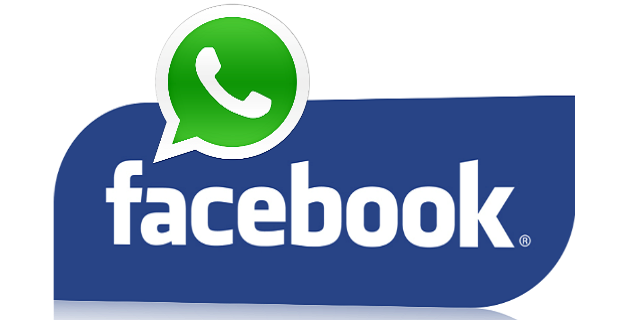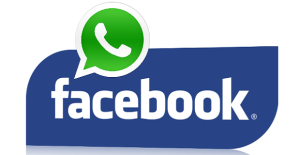
 Many Nigerians will recall when owning a mobile phone is one of the major yardstick to define affluence in the country. This is the period when a small Nokia phone sold for over N20,000 and above while a SIM card costs around N25, 000. During that period, calls go as high as N50 per minute, while text messages cost N15.00 for a page of 160 characters. Although, competition by various telecommunication providers ensured that call rates reduced, especially with the entrant of Glo Mobile, which introduced the per second billing, network providers made mammoth profit as mobile phone users increased in geometric proportion.
Many Nigerians will recall when owning a mobile phone is one of the major yardstick to define affluence in the country. This is the period when a small Nokia phone sold for over N20,000 and above while a SIM card costs around N25, 000. During that period, calls go as high as N50 per minute, while text messages cost N15.00 for a page of 160 characters. Although, competition by various telecommunication providers ensured that call rates reduced, especially with the entrant of Glo Mobile, which introduced the per second billing, network providers made mammoth profit as mobile phone users increased in geometric proportion.Almost 14 years after however, telecommunication has gone beyond mere voice calls and texts messaging. Users can now send pictures, audios, videos, files and the likes via various applications enabled through availability of internet service. Applications like Facebook, 2go, Whatsap, Skype, Viber have further ensured that the amount people now spend on calls and regular text messages have reduced drastically. For instance, 2go, Facebook and Whatsap are instant message applications that provide avenue for users to send and receive instantaneous messages as far as they have internet data services. As a matter of fact, WhatsApp and Facebook now give users opportunity to make and receive calls using their data packages.
Telecommunication service providers like MTN, Globacom, Airtel, Etisalat and the likes are not enjoying the show any longer as the upgrade of applications meant a loss of revenue for them by as much as 50%. The increasing takeover of calling and Short Message Service by Over-The-Top (OTT) players, or applications, such as WhatsApp and Skype has halved revenue not only in Nigeria but globally.
A report from brokerage Credit Suisse stated that the threat to traditional voice and messaging business of telecoms in the country from communications applications, offering free calls and messaging using the Internet, was fast rising.
The Credit Suisse report stated that “Proliferation of over-the-top content services such as Skype and WhatsApp, among others, could trigger whopping 30 to 50 per cent revenue hit on Nigerian telecoms companies’ voice services in the coming months.
Globally, this development has caused disquiet between telecomm owners and the application owners like Mark Zukerberg who owns Facebook and Whatsap applications. The Mobile World Congress, telecom service providers such as Vodafone, Airtel and Telenor have made their discomfort clear when it comes to offering free Internet services over expensive telecom networks in direct reaction to internet.org, an innovation by Zukerberg to give free internet service for applications and services which have partnered with Facebook and various service providers. Internet.org is an effort to bring the internet to the developing world by allowing users in developing countries to access certain websites for free, turning Facebook and Internet.org into de facto gatekeepers of the net, dictating what people can and can’t access online.
A disagreement arose between Zuckerberg and telecoms providers regarding distribution of free internet services at the Mobile World Congress (MWC) recently. The main bone of contention was the billions worth of investment made by telecoms companies for spectrum acquisition and increasing cell phone tower reach. The main argument canvassed by telecoms operators present at the event was that Zuckerberg was serving his own personal business interests by providing free internet access over telecom networks.
In his keynote at the congress, Zuckerberg had said, “Our mission is to help people connect. This will help people stay close to their loved ones, and get access to services like health and education.”Internet.org which is available to smart phone as well as feature phone users, does succeed to an extent on that front as it offers free internet services if you are a Reliance Communications subscriber (in India)”.
Vodafone Chief, Vittorio Colao was quoted as saying that Internet.org wasn’t fair. “It is almost like Zuckerberg does philanthropy, but with my money,” he said. Considering Facebook hasn’t partnered with Vodafone, it is not clear what Colao means when he says ‘with my money’. One can only assume he is referring to the potential loss of customers who may be opting for free internet.org over Vodafone data plans. More so, Airtel’s Sunil Mittal had not been impressed with the Facebook founder’s idea of offering free internet calls. This is quite interesting, considering Airtel is the telecom Facebook has partnered with in Zambia for internet.org.
In this vein, telecommunications and network providers are already facing pressure thanks to messaging and VoIP calling apps, which have hit their SMS and call revenues. Opposing free internet on a telecom network is a natural progression for them. Not long ago, Airtel had come out with a circular to have a separate data plan for VoIP calling, but later retracted it.
A leading telecomm provider in Africa, MTN lamented what they described as the ‘cannibalising’ effect of OTT content services on network operators’ voice and data revenue because they could provide free services, which will duplicate services already provided by network operators such as voice calls and SMS. According to the Public Relations Manager, MTN Nigeria, Funso Aina, “The point to note in this argument is that OTTs allow users to send unlimited texts, images, video and audio messages free of charge using their current data plan.”
Aina further stressed that, the problem is that these services are provided using network infrastructure of operators but without commensurate compensation to operators. The MTN PR manager however, dismissed the allegation that some telecoms operators had continued to dispute a view that they were making enough money from their higher paying data services to offset the loss of voice and messaging revenue.
In what seems like a contradictory perspective, Economic Confidential found that network providers are indirectly raising data rates to see if they can recover part of the about 50 per cent revenue cost.
In Britain, mobile operators on their own part are preparing a lobbying attack on internet companies such as Facebook as part of a major review of communications regulations. According to the telecomm operators, “over-the-top” internet-based calling and messaging apps including WhatsApp, owned by Facebook, should be subject to the same regulations as their own more traditional telecoms services.
While customers seem to be enjoying the new service of Whatsapp and Facebook calls, messages, voice notes, video, audio and file transfers using data package, not only network providers are affected by the drop in revenue. A recent interview granted by Chairman of Nigeria’s Federal Inland Revenue Service (FIRS), Mr. Samuel Ogungbesan, to Economic Confidential revealed that there has been relative drop in the amount of tax paid by telecommunication providers between 2013 and now. According to Ogungbesan, “two years ago, it was MTN alone that paid almost N120 billion (as tax) but the same company today is struggling to even pay N80 billion and that says a lot”.
